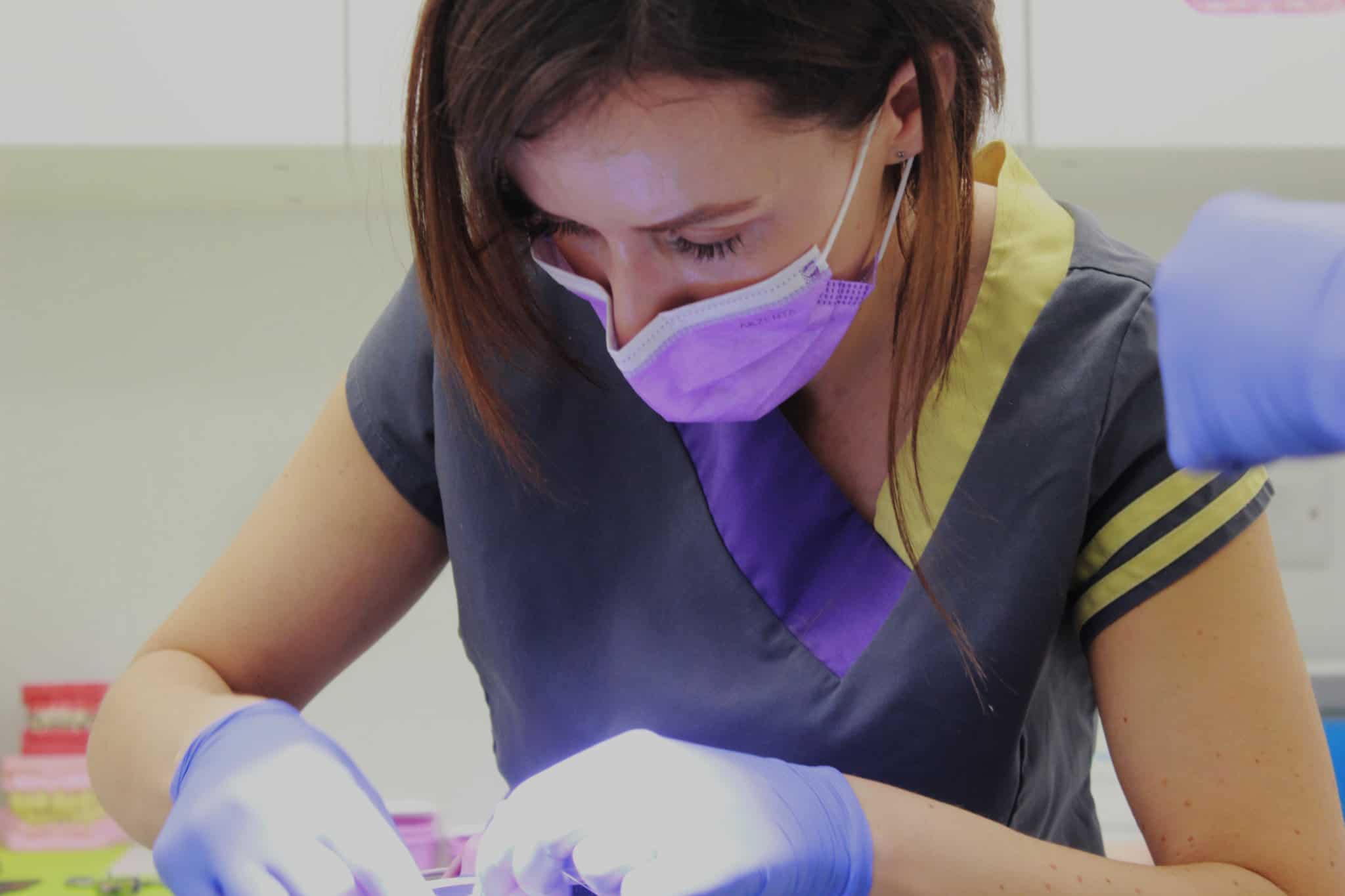Is dental treatment abroad (dental tourism) a good idea in 2025?
Our dentists and specialists take a look at whether it’s possible to get cheap dental treatments abroad and whether dental tourism is really ‘painless’ as the adverts claim. Our experts examine some of the many ways you can be caught out with smart advertising and overblown claims and give useful and impartial advice on whether you can get treatment abroad safely or whether it’s best to stay right here in the UK.
‘Painless’ dental treatments abroad?
Today we’re here to discuss dental tourism and the often heavily advertised concept of getting ‘painless’ treatments abroad. Our cosmetic dentists and specialists will also take a look at some of the other treatments popular with dental tourism companies like crowns and porcelain veneers – and whether going abroad for treatment is a good idea.
Why listen to us?
Smileworks are Liverpool’s top dental practice and one of the largest independent dental practices in the UK. We place hundreds of dental implants right here in Liverpool and hear lots of stories of dental treatments abroad.
Smileworks are one of the largest collection of experts in this area and we’ve got a lot of highly qualified professionals who’ve crowd-sourced impartial professional advice (and some horror stories) about dental tourism.
Dentistry isn’t painful – but the bill can be!
Getting big treatments such as implants, porcelain veneers, crowns or any dental treatment is not painful. Come on it’s 2025 after all and dental treatments aren’t painful. If you experience pain at the dentist you need to change your dentist. Sedation, local anaesthetic and our advanced skills mean you won’t feel pain during your procedures. Good dentists are in the business of getting patients out of pain, not causing it. Still don’t believe us? Here’s some proof from our own patients…

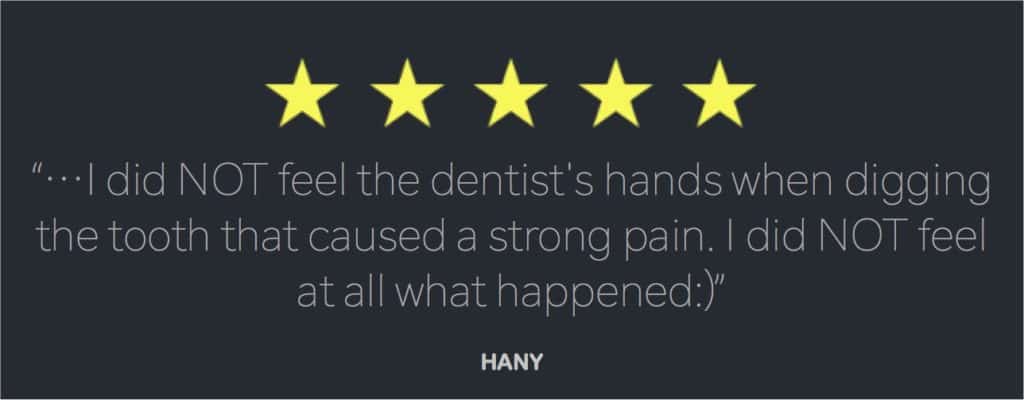
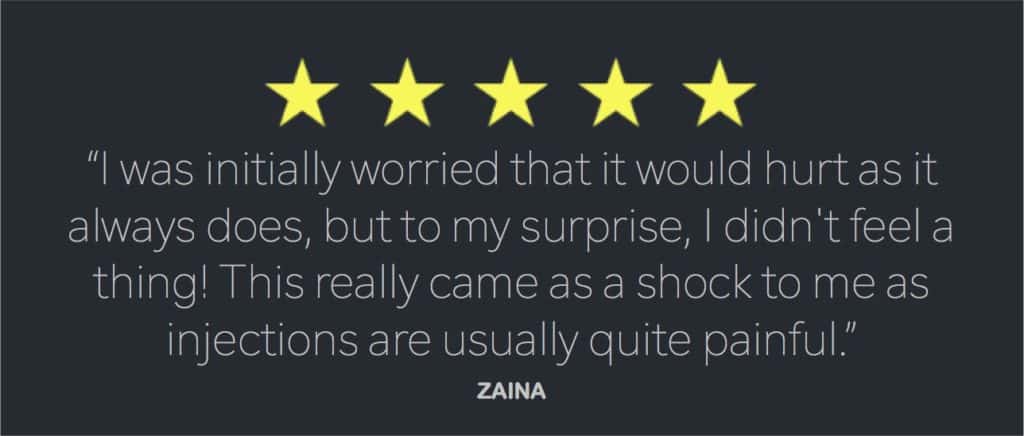

The real cause of dental pain
The only pain caused by big dental treatments such as a smile makeover, implant placements, crowns, veneers and injections is caused sometimes by poor technique but by the bill when you are overcharged or when you’re mis-sold treatment.
These problems can be avoided. Yet we’re seeing more and more bad dentistry coming out of Europe where patients have had dreadful experiences in a ‘wild-west style’ under-regulated, over-salesy and sometimes downright dangerous dental tourism industry that appears to be growing.
“Every patient I have ever seen whose been treated abroad always had very inflamed gums, food packing, poor aesthetics and complains about changes in their bite or pain in the jaw joint.”
Paula “Bambi” Reed | Dental Hygiene Therapist
Smileworks 2019
We gain nothing by criticising others, we’re here to help
Here at Smileworks we’re not in competition with dental tourism companies so haven’t got an axe to grind. In fact we’d rather stay out of the crosshairs of these well funded and large businesses with a penchant for less than reputable treatment of others. It’s risky for us to speak out but were scientists and healthcare providers so it’s also our duty to do so.
How much dental tourism is there in the UK?
What procedures are most popular?
Dental tourism often involves larger cases and even the international medical travel journal (IMTJ) says it’s not worth going abroad for less than four or more implants. That said, we’ve heard of root canal treatment and fillings being done abroad.
Medical tourism worldwide
In general, medical tourism is a booming business that approximately two million people worldwide take advantage of on an annual basis. The UK spends approximately £5.8 billion a year on dental treatments and dentistry is becoming one of the most sought after treatments within the medical tourism industry.
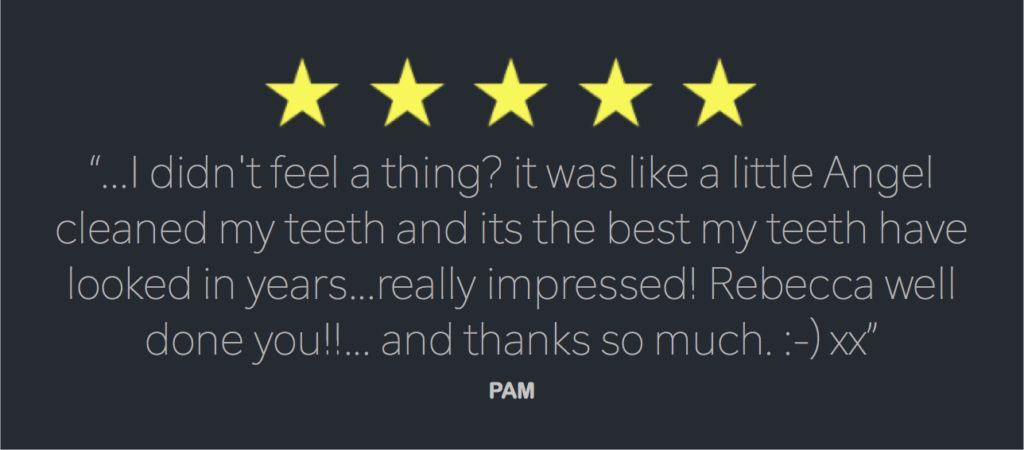
Where do most Brits go for their treatments abroad?
The most popular destination for Brits seeking dentistry abroad is Hungary where a staggering 35,000 people each year get treatment. Other popular countries include Slovakia, Turkey, Poland and Greece. Do a quick google search for “cheap dental treatments abroad” and you’ll see lots of adverts on for the most popular countries to visit.
Is the dental tourism industry really growing?
We’re only talking about our practice and our dentists and what they’ve heard here. We’ve also done plenty of research and spoken to some other practices and ‘secret shopped’ dental tourism companies to see what their processes are.
That’s 22 dentists, dental hygiene therapists and dental nurses. That’s a lot of experience. So we believe our conclusions are representative of the true picture in 2025. It may be that patients come to us when they’re in trouble because of our positive reputation. Or it may be there are more patients in trouble in recent times.
Whichever is true we need to talk about it so you can avoid the pitfalls of dental tourism.
Thankfully the total numbers of people going abroad for treatment appears to be declining. The heyday for dental tourism for Brits was the noughties. Big news stories in 2005 (when Hungary joined the EU) proclaimed the industry was exploding.
But that’s fourteen years ago now and although dental tourism in general (like everything) is on the rise, dental tourism by British patients to Hungary has declined by almost 40% say the IMTJ.
We’re also seeing more and more coverage in the news about how to claim when your treatments have gone wrong or been mis-sold. See this article in the Telegraph about how to fight back against being ripped off abroad.
This is a development of recent years and as the competition grows with UK practices offering lower prices, the international companies (out of desperation) are getting more heavy handed with their advertising and sales tactics. That said, international medical tourism is increasing from countries like Germany and other EU states. In fact more reputable foreign dental companies are now opening up in the UK because it’s cheaper here now and they can do a better job.
Why get dental treatment abroad?
Is it really cheaper?
Some adverts claim you can get 4 crowns fitted for the price of 1 on average when compared to the UK. There’s also the rise in popularity of low-cost airlines with flights being cheaper than ever before. This helps dental tourism companies tempt patients into treatments with package deals.
So cheap flights, cheap materials and favourable exchange rates are enticing factors that influence many to take the leap and make their dreams of a smile makeover a reality, for a fraction of the cost. While the theory is sound, you will read below that the actual position can be very different.
Love Island fever gripped the nation in the summer of 2018 and one contestant caught the eyes of viewers with his pearly-white smile. He mentioned in his introduction to the show that he had undergone dental surgery in Turkey and subsequently Google searches such as ‘veneers Turkey’ and ‘Turkey teeth veneers price’ shot up overnight.
Many dental clinics abroad advertise their low-cost fees and offers on social media and Google with claims of cheap smile makeovers, holiday experiences and VIP services.
We believe this softens the serious nature of complex dental procedures s and we’re concerned that some companies are specifically targeting certain patients more likely to succumb to a sales pitch.
Aggressive advertising campaigns
The lure of cheap cosmetic dental procedures abroad is strong, with clinics offering free consultations, examinations, reimbursement of flight tickets and transfer from the airport.
Others offer free hotel stays and holiday packages. Seem too good to be true? Well it is. The materials, service and expertise you get abroad is so cheap that they can literally afford to throw in all these extras and still make a decent profit. Two things dramatically increase the chance of a successful dental treatment; good materials and a good dentist. Both are expensive. So on which of those two are the corners being cut?
[google-reviews-pro place_name=’Smileworks Liverpool’ place_id=ChIJYcxahCghe0gRzAq3iKInT8E auto_load=true rating_snippet=true view_mode=slider slider_speed=3 slider_count=3 open_link=true nofollow_link=true]
Should these adverts be allowed?
Unfortunately it’s up to you to decide on the quality of the practice and practitioner you choose.
Aggressive advertising and mis-selling in dental tourism raises some serious issues related to getting proper consent for treatment and the advertising standards that govern the dental industry as a whole.
“In the UK we are trained to inform patients fully about different treatment methods and the pro’s and con’s of each. This means they make an INFORMED decision. This is an essential part of the GDC’s guidelines.
I have had patients who want a quick, cheap fix or a “Hollywood smile” but don’t really understanding what that entails. Celebrities talk of veneers all the time but these aren’t always appropriate for everyone and they also aren’t what patients end up getting when they are abroad.”
Rebecca Newbold | Dental Hygiene Therapist
Smileworks 2019
“Some patients get a full mouth of crowns when short term ortho would suffice. This is wanton destruction of healthy teeth. It’s indiscriminate, irreversible tooth destruction that’s also a recipe for occlusal and TMJ disasters.” [problems with your bite and jaw joint]
Susan McBride | Dentist
Smileworks 2019
You’ve all seen PPI claims adverts. But make a mistake with your dental treatment and money won’t fix it because your smile and health will be ruined. There will be no opportunity to claim back your broken and overly drilled teeth if you’ve had a mouth full of veneers abroad and your natural teeth are destroyed.
There are stories of things going dramatically wrong abroad but also many patients simply don’t get what they bargained for and have no recourse to a regulator or to the courts. So you can’t easily complain and you can’t easily sue to get your money back.
Here’s the account of Rebecca Parkes, one of our Dental Hygiene Therapists at Smileworks. She tells a story of a patient she saw who was in terrible distress;
“She had been to Turkey for what she thought were “veneers” but which were in fact massively over prepared crowns and bridges! Many teeth were needlessly bridged together leaving no room to floss. In a lot of the spaces, there wasn’t even room for interdental brushes to fit!
The margins of all the restorations were just terrible and they were damaging the gums and causing them to bleed which was her presenting complaint. There was very little we could do but refer her to the local hospital for an opinion from a consultant.
Unfortunately we got a letter back a few months later saying they wouldn’t be offering any treatment and the patient must travel back to Turkey for treatment from the original provider.
The consultant advised the patient to ask why these destructive preparations had been offered in the first place. The patient was understandably really upset and was not in a position financially to travel back to Turkey. She was asking me what we could do but I just couldn’t help her. It was awful.”
Rebecca Parkes | Dental Hygiene Therapist
Smileworks 2019
Are dental tourism patients more vulnerable?
This is a more difficult question. We can confidently say that patients looking for any cheap dental procedures are potentially more vulnerable or less understanding of the risks of complications of treatment. Otherwise why would you be entertaining some of the downright crazy offers and deals?
But that said it’s certainly not the patients’ fault. They are often exposed to the bargain basement of the industry who don’t take the time and care to explain things properly and sometimes intentionally mislead.
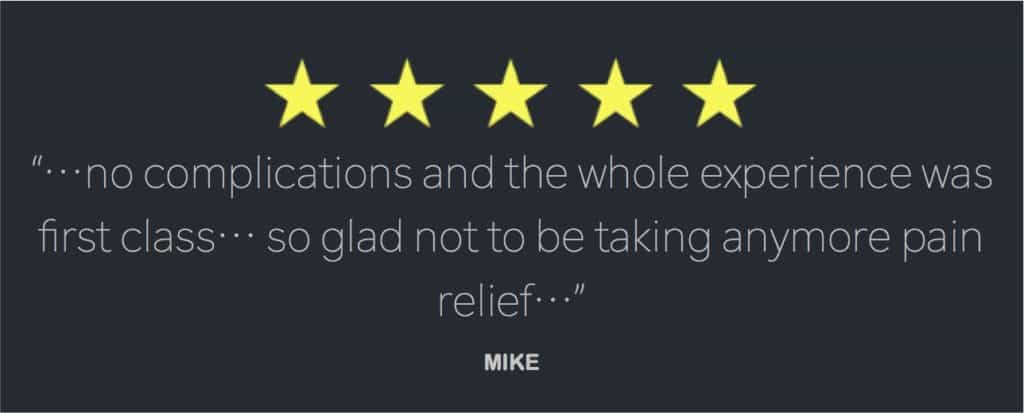
Patients may not have researched enough about the clinic or dentist they plan to visit. Patients may think it’s quite normal for a dentist to plan their treatment over images shot on an iPhone or on WhatsApp. It’s certainly not – and foreign dentists using WhatsApp in place of a full consultation are taking a route that frequently ends in disaster.
“I spent years trying to convince a friend not to go abroad. She went anyway and got these horrendous looking crowns. Her initial consultation was via Facebook and WhatsApp and she was treatment planned by pictures she sent herself of her teeth. My friend said this dentist took no x-rays at all of any of her teeth and just started to prep them [drill them].”
Clare Jones | Dentist
Smileworks 2019
Are the host countries healthcare systems at risk?
For many of the host countries, dental tourism is such big business that they have entire government departments devoted to shipping as many Brits and Germans over as they can to boost the economy. But there is also a much darker side to Hungarian dental tourism. You will almost always be asked to pay in cash. One patient had a large gentleman sit down next to him on the plane out of Manchester and was asked, ‘have you got the cash’? So why the obsession with cash?
This is because there is a waiting list at most hospitals and dental practices for Hungarian nationals in need of complex procedures or in pain. Conversely cash-paying foreigners get to skip to the front of the line.
This is rooted in years of corruption and is something you can read about here. So if you care about others then you need to understand that dental tourism is not helping foreign healthcare systems it’s harming them and might just be lining the pockets of a few wealthy and well connected individuals at the expense of people in real need.
How does dental tourism work? And what Problems have we identified?
Communication problems
When we ‘secret shopped’ a leading dental tourism company the dentist asked us to send them a recent X-ray and to describe our ‘dental problem’. Their dentists then looked at the x-ray and our recent dental records and gave us a treatment plan and price quote by email.
They did not call our practice and ask to speak to our dentist. Our stooge explained some things that should have raised red flags and the response was basically ‘Our dentist knows what he’s doing and it’ll be ok when you get here’.
“Speaking to your own dentist before considering treatment abroad is highly advisable, as they can offer you advice according to your dental history. In case there are any complications, they should also know about your treatment plans.”
Susan McBride | Dentist
Smileworks 2019
Many clinics will actually start planning your dental procedure via Facebook and WhatsApp. Other clinics have offices in the UK where you can get your consultation and initial planning done. The consultation is not usually carried out by a dentist though, so it’s unlikely to be of much use as non-dentists cannot diagnose gum disease or see problems that might potentially cause an adverse event or compromise result.
Consider this: would you take a picture of your broken-down car engine on WhatsApp and send it to a mechanic and expect them to be able to tell you what’s wrong and quote you a cost to fix it? No – of course not, that’s insane! How are they supposed to see what’s wrong from a picture?
I think you know where we’re going with this…
How many trips abroad will I need?
You travel to the clinic with a low budget airline and get your free shuttle transfer from the airport. Some clinics own local accommodation where you can stay as a guest for free for the duration of your treatment. Others help you obtain discounts at partner hotels or put you up with other patients in an Airbnb.
Finally, you meet the dentist who’ll be responsible for your treatment and then have your actual consultation. This is the first time your dentist will have seen you face to face, and they will have already planned your treatment from the X-ray and information you’ve sent them and not looked in your mouth. So they’ve said how they are going to fix your broken down car without even popping the bonnet! This is not how good dentistry happens.
What if it doesn’t feel right or I am unsuitable?
If something doesn’t feel right or a problem is found that wasn’t picked up from the x-ray or photos then ask yourself; “once I’m in the foreign country will the dentist do the right thing and recommend no treatment or continue on despite the problems?”
We are extremely concerned about veneers and being placed on patients who are simply not suitable or who have gum disease. This is a big problem and our specialists and dentists have to frequently turn patients away or spend time stabilising their gum disease before they they can have treatment.
This is normal.
Foreign clinics don’t do this. How can they? You can’t exactly fly over to Hungary every three months while they stabilise your gum disease. Furthermore turning you away at this stage would mean the foreign dentist loses out on their significant investment to get you through their system and to their practice and also on the brown envelope full of cash in your jacket.
Realistically there is going to be a massive incentive – an imperative – for the dentist to go ahead and treat you no matter what the risk and no matter what the cost.
“Some places are performing advanced work i.e. lab made items whilst patients have raging gum disease. You don’t build a house on a soggy foundation and it’s exactly the same for your teeth. We’d never dream of doing this type of work on someone with gum disease. Stabilise it with hygiene sessions first and only when it’s under control can you look at veneers and more complex treatments”
Clare Jones | Dentist
Smileworks 2019
Here’s where treatment abroad goes wrong…
So this is where the dodgy dentistry starts happening. This unavoidable practical situation is the cause of all the ‘herodontics’ and horror stories that we’ve dug up for you below.
It’s simply impossible to provide aftercare, complete the treatment in one sitting and get a perfect job done first time. This is especially true for big multi-unit cases (more than one tooth) and 90% of patients need something tweaking or doing at a review appointment to ensure the result are perfect. Patients at Smileworks are invited back for a review appointment as a matter of course. Without this appointment our dentists would not feel comfortable they had given the patient the best possible treatment.
So what if I leave the foreign country with a compromised result?
If you go to your dentist in the UK then legally (and for insurance purposes) they cannot help you. This is a fact you have to come to terms with if considering dentistry abroad.
Any UK dentist will not be able to touch the teeth in question because in dentistry the last person to touch you is the person who is legally responsible for the entire treatment. So this means if you’re unhappy you can sue the last UK dentist to tough your teeth. I don’t know about you but our dentists don’t want to be held responsible for the mistakes of others. And patients can, and frequently do, sue UK dentists after having treatment abroad.
“A lot of dentists in the UK won’t treat these teeth and patients are confused by this as this wasn’t explained to them when they signed up to Turkey teeth. Also they don’t know or understand that these crown’s will not last forever.”
Rebecca Newbold | Dental Hygiene Therapist
Smileworks 2019
So you MUST either live with a compromise result or go back to Turkey. Imagine needing to jump on a plane every time you have a toothache.
That’s the sad reality of dentistry abroad.
“Patients end up turning to their own dentist for any problems such as pain or issues with their bite, however, some dentists are reluctant to treat such issues or complications due to the fear of taking the blame if their intervention goes awry.”
Paula “Bambi” Reed | Dental Hygiene Therapist
Smileworks 2019
Not enough information for an effective consultation & diagnosis
Smileworks implantologists – who are the best in the UK – told us not only are many patients not suitable but that just looking at an x-ray and reading medical notes is not enough for them to plan a treatment with any degree of certainty. They simply must have a look in your mouth and conduct a myriad of diagnostic tests.
It can take weeks to get the result perfect as the veneers settle in your mouth and your body adapts to the new situation. Most UK dentists would never dream of conducting a big case without making a follow-up appointment to see how the work was taking and if anything needed adjusting.
The truth about dental treatment abroad
Any dentist who tells you they can do a perfect job of multiple crowns or veneers or in one sitting (no matter what fancy machines they use) is either stupendously arrogant or a fool. What’s more anyone with this magical ability would be able to charge five times the going rate – so why are they offering treatments for rock bottom prices?
We hope by now you are starting to see the truth about dental tourism.
What are the failure rates and risks for common treatments?
- Dental Implant failure rates are between 1-3% in the UK. But where cut price, bargain basement dentistry is concerned, they are naturally going to be higher.
- Catastrophic failure is probably a low percentage but veneers sometimes come off and implant screws sometimes fail or don’t integrate correctly. When this happens you will need to return to the foreign country to get it fixed as no UK dentist will be allowed to help you.
- If you are a smoker the failure rate for jumps to 60%!
- Around 20-30% of patients at Smileworks need some work doing before their big placement. This is usually to help stabilise gum disease. Some patients need to give up smoking before we will treat them. In the UK around 60% of all over 50’s have some kind of gum disease and over 20% of patients are smokers.
So these facts show us there is actually quite a high percentage chance that you will need to return for some kind of treatment before or after placement of implants or veneers and that it’s actually very rare indeed that everything goes 100% right first time. Remember ‘same day teeth’ is not the same as ‘one visit teeth’ – that’s something that many people misunderstand.
You don’t have to look far to find instances of people needing to return to their foreign dentist many times over for follow-up treatment;
“I have had at least 6 patients who’ve been to Turkey for Veneers and want me to maintain them. I take a look and they’ve have a full mouth of crowns! I explain this to them and what this means in terms of the preparation carried out on the tooth meaning that they may have problems in the future if the tooth begins to flare up, such as needing root canal to try and save the tooth or an extraction.
After the tooth has had a root canal it will need another crown or if it’s extracted this means a denture, bridge or implant if appropriate.”
Rebecca Newbold | Dental Hygiene Therapist
Smileworks 2019
How can I make sure this doesn’t happen to me?
If your consultation is in the UK, make sure you ask to see a dentist registered with the General Dental Council (GDC). If they aren’t, then they are working illegally and shouldn’t be practising in the UK. As part of the initial consultation, the dentist undertaking your assessment should also ask you for your full medical history and you must be 100% honest and upfront about any diagnosis of gum disease or if you smoke.
Have you got gum disease? Has your dentist diagnosed it correctly. Here at Smileworks we see an awful lot of undiagnosed gum disease. This is problematic because you may turn up to Turkey with a clean bill of health but actually have gum disease. It’s a very common problem and unfortunately the NHS is under such pressure that sometimes it goes unnoticed.
Dental treatment abroad: risks and dangers
Risks and complications
Whether you have a dental procedure at home or abroad, it’s never risk-free. You might decide to go with the most expensive provider for your treatment and still have something go wrong. Studies have shown that the main issues raised following dental tourism (when it goes wrong) are a lack of accountability and regulation, particularly when complications arise. So you have nobody to complain to and cannot get your money back.
“What happens when things go wrong? Who is held responsible?” As the saying goes, ‘if it seems to good to be true, it probably is…’ so keep your wits about you!”
Laurence Masters | Specialist Orthodontist
Smileworks 2019
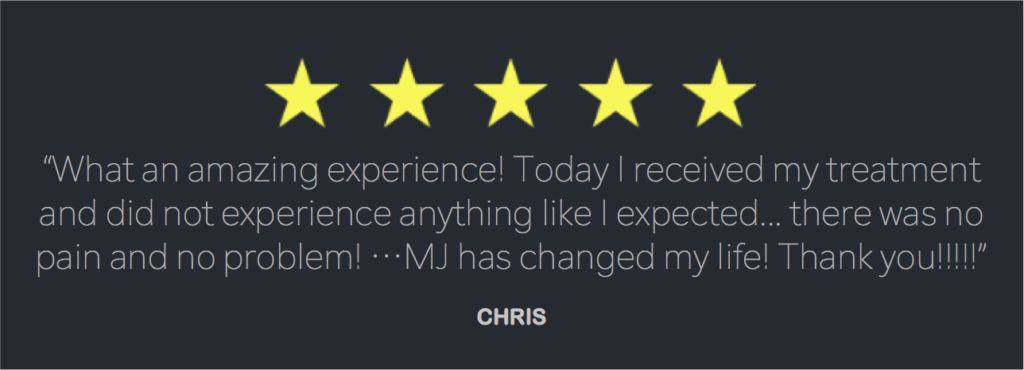
Education and training
The education, training and regulation of dentists trained abroad might be different to those of UK-trained dentists. On the other hand, the UK has also reported some cases of poor infection control practices in the field and if you are looking for cheap dental treatment you can also get it right here at home – and it will often be done terribly badly.
You may also be mis-sold here in the UK too. Those £999 implants you expected were actually just the price of the metal post and the entire treatment with a crown on top costs £3,000 – so the average going rate for an implant at a good practice!
Foreign Regulation
Cases going wrong in the UK are picked up and dealt with by the General Dental Council to ensure quality assurance and best practice guidelines are met. Standards for foreign dentists and foreign dental practices may not be the same as those in the UK. For example, infection control standards can vary widely.
Language barriers
Language barriers are another potential issue with dental tourism. Dentists in other countries may not speak much or any English, which makes communication difficult. Misunderstandings can occur and may indeed be problematic. You need to be able to communicate with your dentist to help you understand the risks and benefits of your treatment.
“Travelling to a far off country which you barely understand the language, to put yourself in the hands of a doctor you have found online with the hope of saving a few hundred pounds might seem like an exotic and appealing idea. Sometimes it might work, but sometimes it might backfire with devastating consequences.
I have however come across situations where patients have decided not to have braces fitted here in the UK with the pretext that they are too expensive and take too long to then go abroad to have all their teeth veneered instead.
Teeth are aggressively prepared and mutilated to compensate the fact that they have not been previously aligned and levelled orthodontically. These treatments are usually irreversible. Once the damage has been done, there is no going back.”
Laurence Masters | Specialist Orthodontist
Smileworks 2019
Recovery, aftercare and post-operative instruction
It’s also important to note that your dental care doesn’t end once you’ve had your procedure and you’re flying home. As with any complex dental procedure, follow up and continuity of care are essential in maintaining the results and your oral health. It’s also just as important to be able to see your dentist as and when you need to.
“As a general trend there is never any aftercare package, they [patients] are never asked to return for any kind of review – because it would be too costly.”
Paula “Bambi” Reed | Dental Hygiene Therapist
Smileworks 2019
Accountability seems to be the main issues for patients undergoing dental treatments abroad. What this means is that the practitioner should have a duty of care, professionalism, and a legal, moral and ethical duty regarding the treatment outcome.
However, it would most certainly be difficult to address the accountability once a patient leaves the country where they had treatment. If a complication arises, it would be almost impossible for the practitioner who carried out the procedure to review and manage this accordingly.

In cases of complications post-treatment, patients are not able to seek compensation as most often than not they aren’t covered by insurance companies. Therefore, dental practitioners in their home country may be required to give second opinions and manage complications.
Dealing with complications
Complications from treatment abroad are extremely problematic for reasons outlined above (legal reasons and insurance reasons) and also that the work is often poor quality:
“A patient just this week had 6 crowns placed abroad, his gums are chronically inflamed and have been for last few years due to the rough margins and badly restored teeth. All the edges of the crowns have fractured and caused wear on his natural teeth as his bite has not been considered at all. He has implants that are impossible to access for professional cleaning. Its hard not to be so negative – but this is just how things are”
Paula “Bambi” Reed | Dental Hygiene Therapist
Smileworks 2019
“When these patients inevitably attend in pain and with failed work done abroad, you have to point out that the work is so far below UK dental standards that they can’t be helped in simple ways and the forceps [extractions] are the only way forward.”
Susan McBride | Dentist
Smileworks 2019
From a dental hygiene perspective, our hygienists have found that the crowns and veneers performed abroad have been very difficult to clean. They have positive and negative ledges around the crowns, some of them have a lot of cement still under and around the gums and some have been stuck together meaning it is very difficult to clean around the teeth by flossing and inter-proximal [tepe brushing] cleaning can sometimes be impossible.
If they can’t efficiently clean around the teeth then this increases their risk of developing gum disease and decay which is likely to result in tooth loss in the long term. A lot of the dentists placing these teeth have also informed patients not to floss or clean in between the teeth as this can cause the gums to recede. If we tell these patients otherwise and explain why, we find that some listen but others don’t.
“Patients are actually told “not to floss”. The exact opposite advice for complex restorations!”
Susan McBride | Dentist
Smileworks 2019
It’s not to say that you wouldn’t find this in the UK, but it feels like these patients are being misled into believing that once they have them placed and if they look great then they will stay this way forever. And giving someone instructions not to floss is, in my opinion (that’s the author Ed Challinor), clinical negligence. Pure and simple.
Things to consider
Whether you choose to have treatment abroad or in the UK make sure you’ve had enough time to think about your treatment. Also, not everything works out just fine all the time.
Dentistry is as much art as it is science. Regardless of how skilled your dentist is, sometimes things don’t always go according to plan or they are more complex than anticipated. Most cases can usually be put right (if you’re in the UK) but just make sure it’s not going to be difficult to see your dentist again by having to book flights that at certain times might be very expensive.
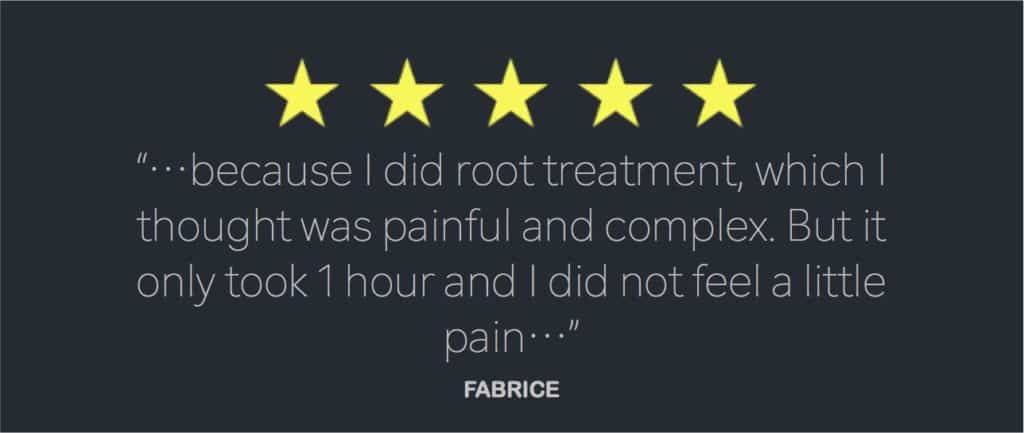
If you do decide to go ahead with treatment abroad, have you been able to ask questions? If you don’t feel as though you can ask questions, or that the answers you are getting don’t satisfy your needs then you have the right to ask for a second opinion. Here are some of the questions you should ask your dentist or dental team abroad as per the GDC’s advice:
- Who will carry out the treatment and what are their qualifications?
- Will I have a translator on the day of my procedure or will the dental team speak to me in English?
- How many of these same procedures have you performed?
- What are your success and complication rates?
- Are you regulated by a professional body and do you need be registered with them?
- For how long is the treatment guaranteed for?
- What aftercare do you provide?
- What will happen if I’m not happy with the results? Will I have to pay for the extra flights, hotel and remedial work?
- In case of any complications and if further treatment is needed, will this be included in the initial cost?
- Do you have any insurance to cover this procedure?
- Who do I contact for advice after my treatment?
Additionally, if your dentist claims to be a specialist, it’s important to ask if they can provide proof. In the UK, the GDC maintains a list of all dentists who have the right to use the title ‘specialist’. Our own Laurence Masters is one of these. Only dentists who meet strict standards of training in a specialist field are granted entry to this specialist list and calling yourself s specialist wen you are not is a criminal offence!
Conclusion
Dental tourism is very popular and clinics abroad are taking full advantage of this new market. The biggest driving forces behind this rise in dental tourism are the result of social media, advertising low-cost procedures and celebrity affiliation.
The experiences of our dentists and dental practitioners are that patients who do go abroad for treatment are misinformed and in many cases, the quality of the work is below the standards we would expect in the UK. The most worrying aspect is when complications arise but the patients’ usual dentist back home is reluctant to offer remedial work and the patient is left out in the cold
If you’re in any doubt then take a leaf out of Chelsea’s book right here in the UK and vote with your feet. She’s a patient of Smileworks;
“After losing all trust in my old dentist I just stopped going! The more time passed the more embarrassed I was to visit a new practice. I really wanted braces so eventually I bit the bullet and after lots of research decided on Smileworks.
I am so glad I chose this bunch, they have absolutely restored my faith in dentist’s! I actually look forward to my appointments and the work they have done up to now is faultless. Today I had my Fastbraces® fitted and I’m so excited to see the results! Thank you all for making me feel so relaxed and for putting me on the path to my new smile 🙂 xXx”
CC – 1 Review, 2 Years ago
Smileworks Liverpool


